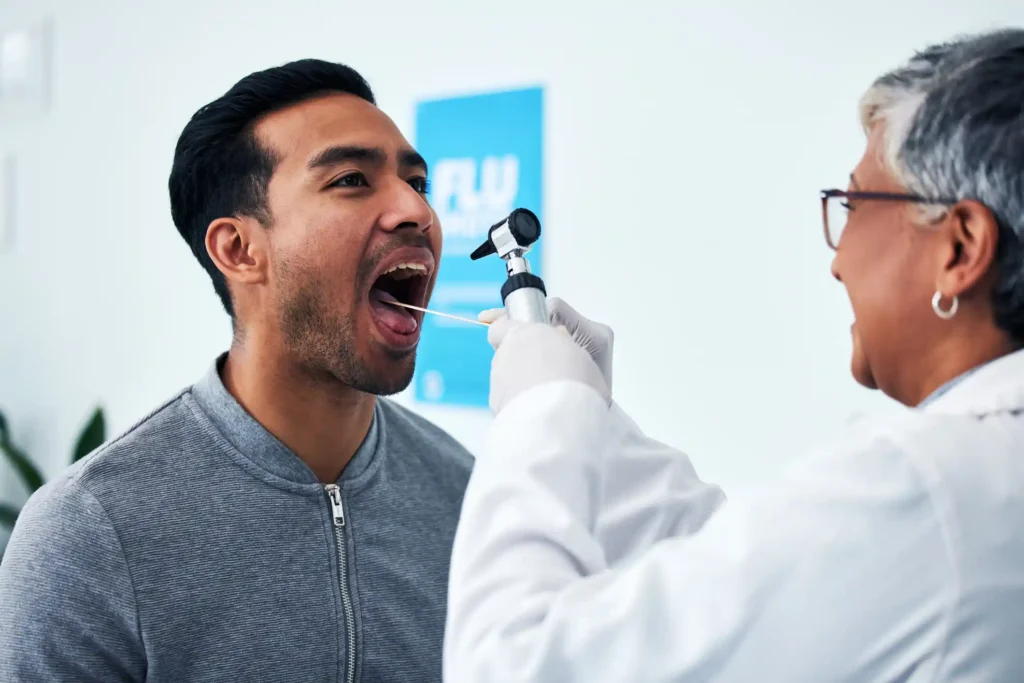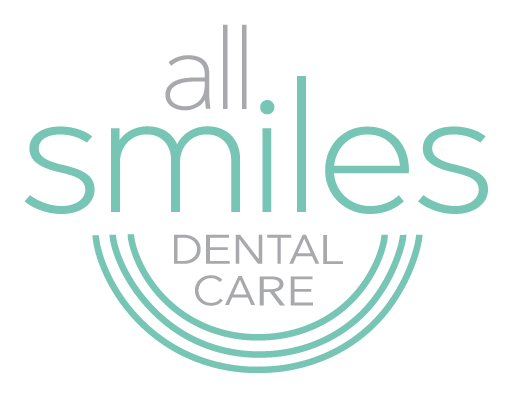The Importance of Oral Cancer Screenings During Checkups
The Importance of Oral Cancer Screenings During Checkups
When you think about a dental checkup, your mind probably goes to cleanings, X-rays, and cavity checks. While those are crucial parts of any visit, an oral cancer screening should be part of every routine exam. This quick, painless check is one of the most important services your dentist provides, yet many people don’t even realize it’s happening. All Smiles Dental Care covers what oral cancer is, why early detection is critical, what to expect during a screening, and what you can do to lower your risk.

What Is Oral Cancer?
Oral cancer, also known as mouth cancer, refers to cancer that develops in the mouth. This includes the lips, gums, tongue, inner lining of the cheeks, roof of the mouth, and the floor of the mouth. It can also occur in the oropharynx, the part of the throat just behind the mouth. Like other cancers, it begins when cells grow uncontrollably and form a tumor.
Why Oral Cancer Screenings Are Important
The most critical reason for regular screenings is the early detection of oral cancer. When found in its early stages, oral cancer has a significantly higher survival rate, often over 85%. Unfortunately, many oral cancers are not discovered until they have advanced and spread, making treatment more difficult and complex. A routine oral cancer screening allows us to spot subtle changes or abnormalities that you might not see or feel.
Risk Factors for Oral Cancer
While oral cancer can affect anyone, certain lifestyle factors and conditions can increase your risk. These include:
- Tobacco Use: Using any form of tobacco, cigarettes, cigars, pipes, or smokeless tobacco, is the single greatest risk factor.
- Heavy Alcohol Consumption: Frequent and heavy drinking significantly increases the risk.
- Human Papillomavirus (HPV): Certain strains of HPV, a common sexually transmitted infection, are now a leading cause of oropharyngeal cancers.
- Excessive Sun Exposure: Prolonged sun exposure is a primary cause of cancer on the lips.
- A Weakened Immune System: Individuals with compromised immune systems are more susceptible.
- Poor Diet: A diet poor in fruits and vegetables may increase risk.
What Happens During an Oral Cancer Screening?
A dental cancer screening is a simple, quick, and painless process that your dentist can seamlessly integrate into your regular checkup. The entire screening typically takes only a few minutes. If your dentist finds something concerning, it doesn’t automatically mean you have cancer. They may recommend a follow-up visit to see if the spot has changed or refer you to a specialist for a biopsy to get a definitive diagnosis. It involves two main parts:
The Visual Exam: We will carefully examine your entire mouth, including your lips, cheeks, gums, tongue, palate, and the back of your throat. They will look for any asymmetries, sores, lumps, or patches of abnormal color. We may use a special light or dye to help identify suspicious areas.
The Physical Exam: We will gently feel the tissues in your mouth, jaw, and neck to check for any unusual lumps, masses, or swollen lymph nodes. This tactile examination can detect abnormalities that are not visible to the naked eye.
Signs and Symptoms to Watch For
In between your routine dental exams, it’s important to be aware of your own body. Pay attention to any changes in your mouth and contact your dentist if you notice any of the following oral cancer symptoms lasting for more than two weeks:
- A sore, lump, or ulcer on your lip or mouth that doesn’t heal.
- A red or white patch on your gums, tongue, or lining of your mouth.
- Unexplained bleeding in your mouth.
- Numbness, pain, or tenderness in any area of your mouth or face.
- Difficulty chewing, swallowing, speaking, or moving your jaw or tongue.
- A persistent sore throat or feeling something is caught in your throat.
- A change in your voice or hoarseness.
How Often Should You Get Screened?
Generally, adults should receive an oral cancer screening at least once a year. Most people can do this during one of their regular six-month dental checkups. If you have a higher risk due to factors like tobacco use or heavy alcohol consumption, your dentist may recommend more frequent screenings. The key is to make it a consistent part of your preventive health care.
Preventing Oral Cancer
While not all oral cancer can be prevented, you can do your part to significantly lower your risk. These steps include:
- If you use tobacco, quitting is the single most effective preventive measure you can take.
- If you drink alcohol, do so in moderation.
- Use SPF lip balm and wear a wide-brimmed hat to protect your lips.
- A diet rich in fruits, vegetables, and whole grains can help boost your immune system.
Contact All Smiles Dental Care
All Smiles Dental Care puts your dental needs first. We understand that a dental checkup can protect your life. The importance of oral cancer checkups cannot be overstated. Take an active role in your health by ensuring an oral cancer screening is part of your next dental visit. Schedule your routine dental exam and oral cancer screening with our team today.
Frequently Asked Questions
- Is an oral cancer screening painful? No, a standard oral cancer screening is completely painless. It is a quick visual and physical examination of your mouth and neck that requires no invasive procedures.
- What happens if my dentist finds something suspicious? If your dentist notices a suspicious area, the first step is often to have you return in a couple of weeks to see if it has healed or changed. If it persists, we will refer you to an oral surgeon or an ear, nose, and throat (ENT) specialist for a biopsy.
- Does a suspicious spot always mean I have cancer? Absolutely not. The vast majority of sores and spots found during screenings are benign and are caused by something simple, like a bite to the cheek or irritation from a dental appliance. However, because early detection is so critical, it is always best to evaluate any abnormality professionally.
